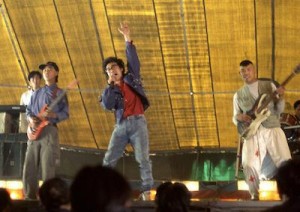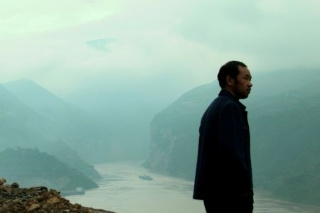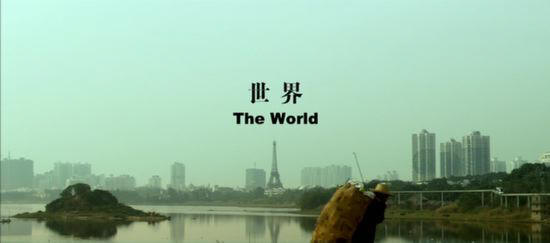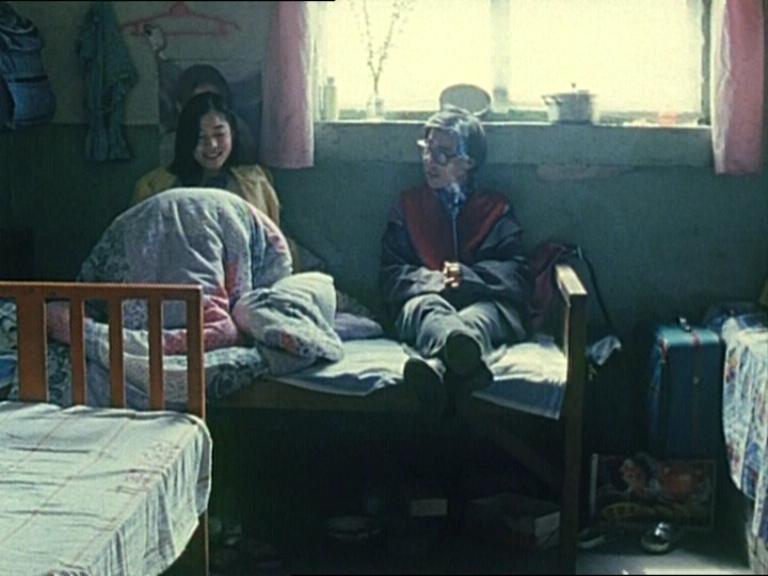This was written for a brochure to accompany a retrospective held by Northwestern University’s Block Cinema in January 2008. — J.R.
ZHANGKE JIA, POETIC PROPHET
by Jonathan Rosenbaum
What is it about Zhangke Jia that makes him the most exciting
mainland Chinese filmmaker currently working? It might be
oversimplifying matters to describe this writer-director, born in
1970, as a country boy. But the fact that he hails from the small town
of Fenyang in northern China’s Shanxi province clearly plays an
important role in all his features to date. (I’m less certain about what
role it plays in his two recent documentaries, Dong [2006] and
Useless [2007].) Like William Faulkner and Alexander Dovzhenko,
Jia is a hick avant-gardist in the very best sense — someone whose
outsider/minority status enhances both his humanity and his art.
Working in long, choreographed takes, and mixing realistic accounts
of working-class life with diverse forms of cultural shock and fantasy
ranging from animation to SF to rock, he already qualifies as a poetic
prophet of the 21st century, and not only for China.
He attended the Beijing Film Academy, where he
completed his first film, the one-hour Xiao Shan
(Going Home, 1995). I haven’t seen it, but according
to critic Kevin Lee, it’s about a country boy and
unemployed cook in Beijing who wants to go home for
the Chinese New Year and runs into numerous obstacles,
and it utilizes literary intertitles (which also crop up in
his last two features). Jia’s identification with his rural
hero is apparently underlined in a party sequence where
he appears, speaking drunkenly in his semi-incoherent
Shanxi dialect. (He can be found doing something similar
in the opening sequence of Uncommon Pleasures.)
Given that nearly all Chinese films are dubbed into Mandarin,
this could be seen as a defiant move, comparable to the
direct-sound recording of Taiwanese dialects in the work of
Hou Hsiao-hsien, one of Jia’s key influences.
Fenyang is the main setting in Kiao Wu (Pickpocket,
1997) — another eccentric character study named after its
leading character —- and his second and most ambitious
feature, Platform (2000), an epic following the teenage
members of Fenyang’s state-run Peasant Culture Group
as they gradually mutate over a decade into the privatized
All-Star Rock and Breakdance Electronic Band. In fact,
Platform was scripted before Xiao Wu but made
afterwards because it was far more expensive to finance;
like Jia’s subsequent Unknown Pleasures (2002), it
was an underground independent film — technically banned,
though it circulated in China on pirated video.
Both Unknown Pleasures and In Public (2002) — a half-hour
documentary shot on digital video that scouted locations for the
feature — were shot in another small town in Shanxi about to be
transformed by capitalism, Datung. And even though Jia returned
to Beijing to shoot The World (2004), about alienated workers in
a theme park, and went on to the equally spectacular Three Gorges
Dam in central China for Still Life (2006), leading characters in
both films hail from Shanxi province. So his roots remain, but he
continues to grow. And now that he’s officially recognized by the
Chinese government, he shoots all his features on digital video.








